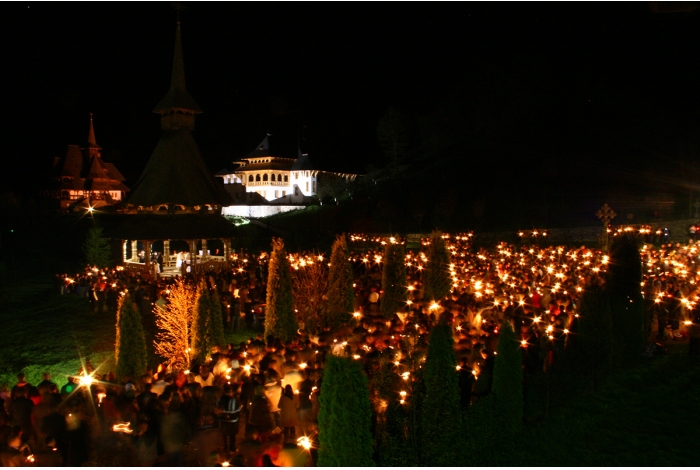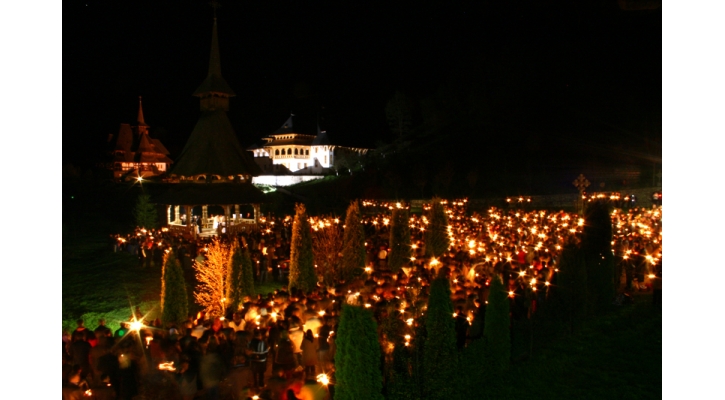A Cultural Holiday
Easter is an important holiday celebrated around the world, though with some countries its significance is more important than others.

Women from Maramures inside a church
Romania, having a very large population of Orthodox Christians, it is celebrated with almost an equal importance as western cultures’ Christmas. This is something that I found to be a very special and a unique quality to this country.
Being from the United States, Easter is much more commercialized (like many other major holidays) than I have witnessed here. Back home the holiday is celebrated mainly with a few chocolates, some jelly beans, and if one is lucky, an Easter egg hunt. If you are religious, it is obviously much more important, being the resurrection of Christ, but for the majority of the population the significance of the holiday revolves around bunnies and chocolate eggs. I was happily surprised that when Easter was coming up there was much more excitement in the air than I remember being at home. Not just the excitement of getting a vacation from school or a few days off of work, but a genuine eagerness to begin the Easter celebrations for traditional reasons.
Thankfully I’ve been able to witness countless examples of such things in the traditional meals served from Good Friday to Easter Sunday, and also in traditions such as dyeing a basket of hard-boiled eggs and eating them during Easter breakfast. The eggs have a special significance in the Romanian Easter traditions and required a little ritual before being able to begin eating. On cracking the eggs, the eldest male would pick up an egg and crack it on the person sitting next to them. Whilst doing this the person making the motion of cracking the egg on their partners would say “Jesus has risen,” and their partner would respond, “This is true, Jesus has risen.” Following Easter, to continue this tradition, whenever one would see their friends or family, instead of greeting them with a “hello” or a “how are you”, one says, “Jesus is risen”, and the other will reply, “This is true, he has.” So its clear that religious aspect of Easter is still sacred in Romania.
Being a religious culture, it was very common (at least much more common than I am used to) for families to attend service throughout the three-day celebration.
On Holy Thursday I was able to attend a service at a little Orthodox church that I had been passing by almost everyday while on the bus to work.
On the way to the service I had the image in my mind of a modest attendance, with plenty of room for maneuvering and such, but little did I know that on my arrival I was to find the place so full of people that it was impossible to even get through the door to see the inside of the building.
Consequently, there were groups of people listening patiently outside to the service, which impressed me a great deal.
What was equally impressive to me as myself being a Catholic was the Catholic mass. When I went to see the service on Saturday I happened to arrive at the cathedral by chance just in time to witness a crowd of people marching in a line with lit candles into the church where the evening mass then commenced. The sight of that many people marching through the city was something that was unlike anything that I have ever witnessed before on Easter or any other religious holiday I recall.
To have been able to witness all of these things was a pleasant surprise.
The cultural and religious traditions that I was able to see made me yearn for the similar excitement back home. It is something that makes Romania truly unique and I think there is much that can be learned by it.
Text: Daniel Zmistowski
Photos: Ana A. Negru




